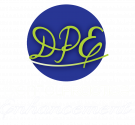
Being diagnosed with an oral health problem that requires treatment can be overwhelming for patients. Even though they completely understand their need for dental work, they may not be prepared to schedule their treatment appointment on the same day they were diagnosed.
In these cases, it’s extremely important for your dental team to have a script for dental treatment plan follow-up calls. This way, your team members feel less overwhelmed, are less likely to procrastinate, and more likely to get the patient back in the office.
Here’s what you should include in your dental treatment plan follow-up script:
1. A personal greeting
Patients need to know they are more than just a number to you. Before a team member calls the patient, make sure he or she knows some personal information about the person he is calling. For example, the patient’s occupation, children, pets, etc.
Beginning the conversation on the right foot puts the patient at ease and will make them feel as important to you as they truly are!
2. A compelling argument
Make sure your dental team member is well versed in the importance of various dental treatments. Provide him or her with documents on every treatment so it’s easily accessible.
Here’s an example of how the conversation might go:
Dental team member: “I know the last time you visited, Dr. _____ found a crack on one of your molars, and we just wanted to make sure things haven’t gotten worse.”
Patient: “I’m not experiencing any pain” OR “I’ve been taking ibuprofen and it seems to be working just fine.”
Dental team member: “Okay, I’m so glad the pain isn’t severe now, but it’s likely that the pain will worsen over time. It’s even possible that your tooth develops an infection from bacteria or food particles that fall into the crack. We would love to go ahead and schedule your treatment appointment now so you can avoid more pain and a more extensive and expensive procedure in the future.”
The dental team member’s response is personable, caring, and compelling. It reminds the patient of the urgency of the dental issue as well as the benefits of receiving treatment now rather than later.
3. Answers to the most common questions
Likely, the patient won’t remember everything you told him or her about the treatment. Here are some questions that the dental team member should be prepared to answer:
- How long does the treatment take?
- Does this treatment require multiple appointments?
- Will I be able to drive myself?
- Can I go to work after my appointment?
- Are there any alternative treatments?
- Will my insurance cover the cost of treatment?
4. End on a good note
Hopefully, the patient is ready to schedule their appointment by the end of the conversation. However, it’s possible that he or she won’t be. Either way, be sure the conversation ends on a positive note!
Thank the patient for their time and for choosing your dental practice.
If the patient didn’t schedule an appointment, follow up with another phone call or email in the next week or two. Consistency and persistence go a long way (if it’s not pushy)!
For More Helpful Tips
If you’re searching for more ways to enhance your dental practice, consider working with a dental practice management team. At Dental Practice Enhancement, our goal is to help you succeed.
We offer services to recover uncollected insurance money, train dental teams to process insurance claims, teach efficient methods for all administrative tasks, and more. We also have virtual assistants who are trained and prepared to help your dental practice run smoothly.
Contact us today at (833) 373-3678 (ext. 1) to learn more!



